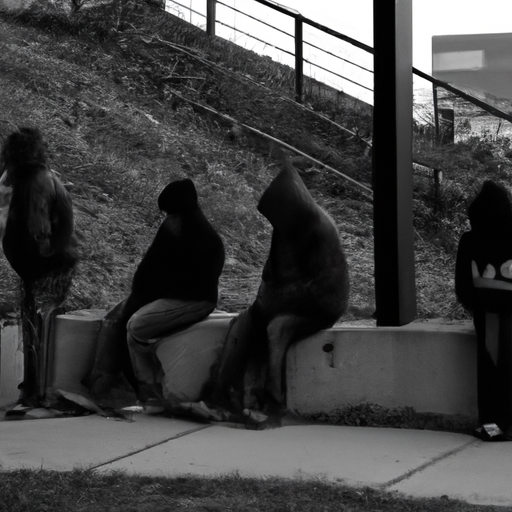The Unseen Impacts of Canadian Opioid Crisis: A Deep Dive into the Socio-Economic Consequences and Combat Measures
The scourge that is the Opioid crisis in Canada continues unmitigated, breeding far-reaching socio-economic impacts that touch every stratum of society, including our educational institutions. This became apparent when a recent CTV news report brought to light a grim incident involving students from Toronto District School Board being inadvertently exposed to the opioid crisis.
Let’s take a moment to explore the wider effects of this crisis, discussing effective responses and how our society can better protect its vulnerable populations.
The Ripple Effects of the Opioid Crisis
As the opioid crisis continues to escalate, we see its many unpleasant side-effects stretching into various aspects of life. One of the less talked about but critical issues involves its effect on the largely vulnerable homeless population. Homelessness and opioid misuse share a saddening symbiosis; the challenging conditions of homelessness can lead to substance abuse, while opioid addiction can shove people into homelessness, creating a vicious cycle.
Closely linked to homelessness is the issue of crime. With rises in opioid addiction, we see upticks in drug-related crime. This impacts community safety, turning it into a matter of concern for everyone, not just those directly affected by opioid addiction.
Entering Unseen Terrain: Opioid Crisis and Schools
The recent incident at the Toronto District School Board reveals a distressing new development in this crisis. Unwittingly, students were taken to an opioid-related protest during a school field trip. This incident demonstrates the tenacity and pervasiveness of the opioid crisis, reaching even into the realm of our educational institutions.
This incident prompts an urgent need for restrictive policies and education about substance abuse for students to ensure their mental and physical safety.
Combat Measures Against The Opioid Crisis
Given the escalating humanitarian crisis resulting from opioid use, a robust response is needed by our healthcare and legal systems to combat these challenges effectively. Several methods are already in play:
- Opioid Class Action: Numerous class-action lawsuits have been initiated in Canada against opioid manufacturers and distributors. These intend to hold the companies accountable for their alleged role in precipitating and exacerbating the opioid crisis.
- Naloxone Accessibility: By making naloxone, a medication that temporarily reverses the effects of opioid overdose, more widely accessible, many lives can be saved. This includes making it available to first responders, law enforcement officers, and the general public.
- Substance Abuse Education: Comprehensive education plans about the risks associated with substance misuse are essential to preventing the onset of opioid abuse initially.
Mobilizing the Community’s Role
While these measures are integral in combating the opioid crisis, they can only be truly effective if the community rises to the challenge. Distribution of naloxone kits, education initiatives in schools, and support for those affected by opioid addiction requires proactive participation from the community.
Public awareness campaigns, volunteering in shelters, and supporting local opioid addiction recovery programs are some ways we can all play a part in addressing this crisis head-on.
Conclusion
As we conclude, we recognize that the Opioid crisis winds its insidious tendrils into all areas of society, with the homeless population and even our schoolchildren not spared. The incident with the Toronto District School Board underscores the urgent need for the stringent implementation of protective measures and education.
We must continue to advance against this complex crisis, using legal avenues like an opioid class action, increasing access to life-saving substances like Naloxone, and undertaking comprehensive education efforts. Above all, we must harness the collective will of the community to stand against opioid addiction, inviting each one of us to take responsibility and action against this crisis.
